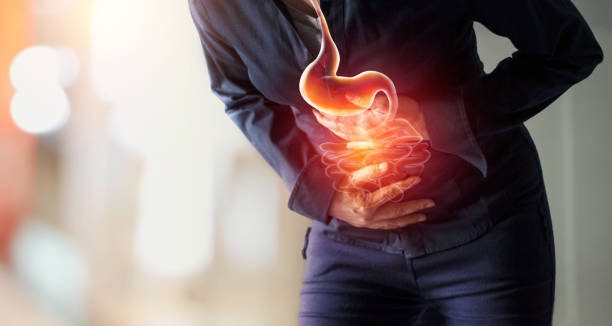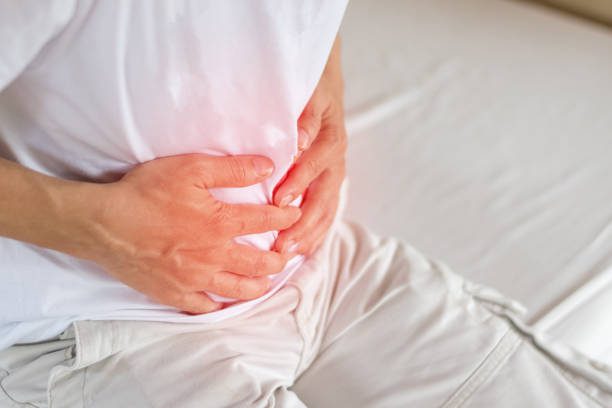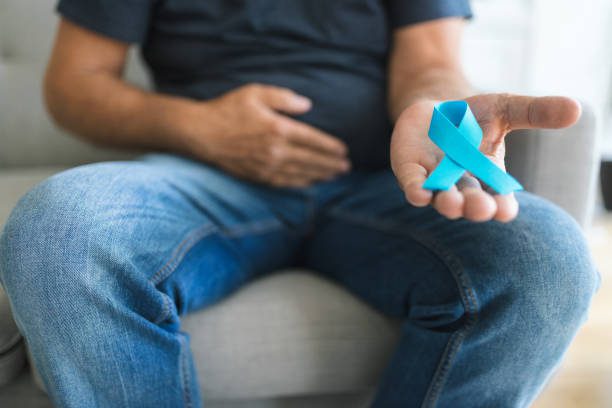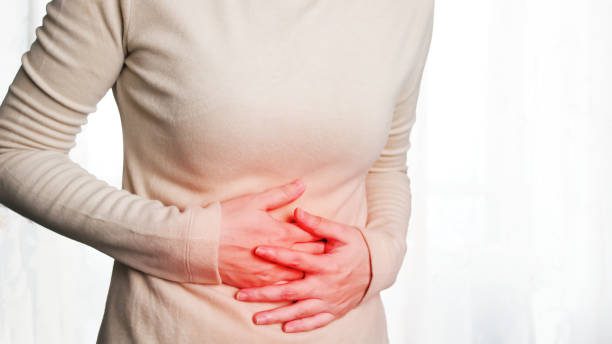This content is for informational and educational purposes only. Always consult a qualified healthcare provider.
Last Updated on January 25, 2024 by Grace Oluchi
There are a number of possible causes of lower right abdominal pain, but it is important to see a doctor if the pain is severe or goes on for an extended period of time. Your doctor can determine the base cause of the pain and develop an appropriate treatment plan. In the meantime, you can try applying heat or taking over-the-counter pain medication to alleviate the pain.
Abdominal pain is a common ailment that affects people of all ages. Lower right abdominal pain is a particularly concerning symptom that can be caused by a variety of factors. In this article, we will explore the top 5 frequently asked questions about lower right abdominal pain and provide detailed answers to help you understand what could be causing your discomfort.
📋 Table of Contents
When is pain in your lower right abdomen an emergency?
Pain in the lower right abdomen could be a sign of several conditions, which may require immediate medical attention. However, if you experience severe abdominal pain that is not relieved by over-the-counter pain medications, followed by severe vomiting or fever, it is important to seek immediate medical attention.


Also, if you experience pain that is adding rapidly, or if you cannot touch the area of pain without experiencing severe pain, or your abdominal pain is followed by any of the following symptoms, it is needed to seek medical attention as soon as possible.
- Feeling of pressure in your chest, jaw, neck or arm.
- Fever.
- shortness of breath.
- Unusual weight loss.
- Unusual persistent loss of appetite, nausea and vomiting.
- Dizziness or lightheadedness.
- strain or pain when swallowing
- Sweating.
- Blood in your vomit or stool.
- Skin or eye whites that appear yellow (jaundice).
- Severe pain when you touch your abdomen.
- Unusual swelling of your abdomen.
- Black-like stool.
What causes Lower Right Abdominal Pain?


Some of the causes of lower right abdominal pain include:
- Appendicitis: inflammation of the appendix.
- Ovarian cysts: fluid-filled sacs formed in the ovary.
- Kidney stones: small, hard deposits that form in the kidney.
- Inflammatory bowel disease: chronic inflammation of the digestive tract.
- Hernia: a protrusion of an organ through a weak spot in the abdominal muscles.
- UTI: urinary tract infections can cause pain in the lower abdomen.
- Gynecological issues: endometriosis, uterine fibroids, and pelvic inflammatory disease (PID) may cause lower right abdominal pain.
- Irritable bowel syndrome (IBS): a common gastrointestinal disorder.
- Diverticulitis: inflammation, and infection of the diverticula (small pouches) in the colon.
- Ectopic pregnancy: a pregnancy that develops outside the uterus, mainly in the fallopian tube.
You May Also Read
- Six Essential Secrets To Achieve Washboard Abs
- 8 ways to lose belly fat.
- URINARY TRACT INFECTION: All you need to know
- Nutrition to boost your health.
- Tips for Administering Subcutaneous Injection.
Conditions that affect people assigned females at birth.


- Menstrual disorders – Irregular or painful periods, premenstrual syndrome (PMS), and heavy bleeding are common menstrual disorders in those assigned female at birth.
- Polycystic ovarian syndrome (PCOS) – PCOS is a hormonal disorder that causes cysts to form on the ovaries, leading to irregular periods, weight gain, and acne.
- Endometriosis – This is a condition where the tissue lining the uterus grows outside of it, causing pain, heavy periods, and fertility problems.
- Breast cancer – Breast cancer is a malignant tumor that develops in breast tissue and can occur in those assigned female at birth.
- Ovarian cancer – Ovarian cancer is the 5th leading cause of cancer deaths in women and affects those assigned female at birth.
- Cervical cancer – Cervical cancer is a type of cancer that starts in the lining of the cervix and is caused by the human papillomavirus (HPV).
- Menopause – Menopause is a natural process that occurs when hormone production stops, causing a cessation of periods and other symptoms.
- Premenstrual dysphoric disorder (PMDD) – PMDD is a severe form of PMS, causing depression, irritability, and anxiety in the weeks leading up to menstruation.
- Urinary tract infections (UTIs) – UTIs occur more frequently in those assigned female at birth due to the shorter urethra, making it easier for bacteria to enter the bladder.
- Vulvodynia – Vulvodynia is chronic pain or pain in the vulva area, causing burning and ache during sex and other activities.
Conditions that affect people assigned males at birth.


There are many conditions that can affect people assigned male at birth. Here are some examples:
- Erectile dysfunction: This is a common condition where a person is unable to maintain an erection during sexual activity.
- Prostate cancer: This is a type of cancer that can develop in the prostate gland, which is part of the male reproductive system.
- Testicular cancer: This is a cancer that develops in the testicles, which are part of the male reproductive system.
- Hypogonadism: This is a condition where the body does not produce enough testosterone, which can lead to low sex drive, erectile dysfunction, and other symptoms.
- Andropause: This is a term used to describe a decline in testosterone levels that usually occurs in men as they age.
- Gynecomastia: This is a condition where men develop breast tissue, which can be caused by changes in hormone levels.
- Male pattern baldness: This is a hereditary condition that causes hair to thin and fall out on the scalp.
- Premature ejaculation: This is a condition where a person ejaculates too quickly during sexual activity.
- Peyronie’s disease: This is a condition where scar tissue develops in the penis, causing it to curve or bend during erections.
- Varicocele: This is a condition where veins in the scrotum become swollen, which can lead to infertility or other complications.
The Key Takeaway.
Lower right abdominal pain can be caused by various conditions, including appendicitis, ovarian cysts, kidney stones, diverticulitis, or urinary tract infections. It is essential to seek medical attention immediately if you experience severe or persistent pain, nausea, vomiting, fever, or difficulty urinating or passing stools. A healthcare professional will perform a physical examination, laboratory tests, imaging studies, or other diagnostic procedures to determine the underlying cause of your pain and recommend appropriate treatment options. It is crucial to follow your healthcare provider’s recommendations to prevent potential complications and promote a speedy recovery.
What are the common causes of lower right abdominal pain?
Lower right abdominal pain can be caused by a multitude of factors, including appendicitis, ovarian cysts, kidney stones, intestinal gas, and hernias.
How can I tell if my lower right abdominal pain is appendicitis?
Appendicitis is a medical emergency that requires prompt attention. Symptoms of appendicitis include sharp pain in the lower right side of your abdomen, nausea, vomiting, fever, and loss of appetite. If you experience these symptoms, seek medical attention immediately.
Can ovarian cysts cause lower right abdominal pain?
Yes, ovarian cysts can cause lower right abdominal pain. Symptoms of ovarian cysts include pain during intercourse, irregular menstrual cycles, and sharp pain in the lower abdomen.
What are the warning signs of kidney stones?
Kidney stones can cause severe pain in the lower right abdomen, as well as nausea, vomiting, and fever. If you experience these symptoms, seek medical attention immediately.
How can hernias cause lower right abdominal pain?
A hernia occurs when an organ or tissue pushes through a weakened area in the abdominal wall. Symptoms of a hernia include pain in the lower right abdomen, a bulge in the affected area, and a feeling of weakness or pressure.

